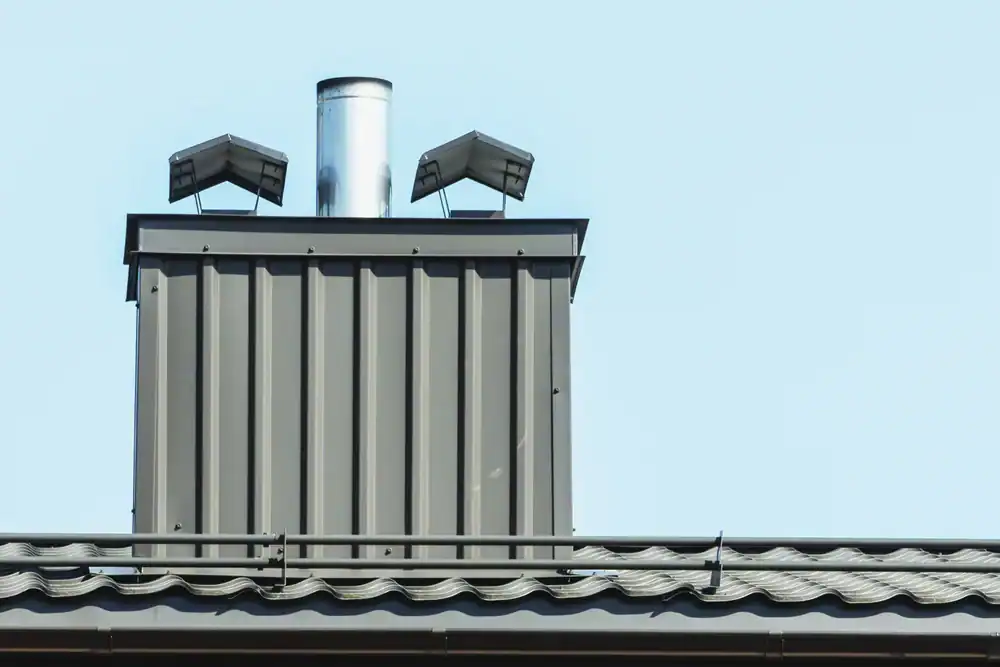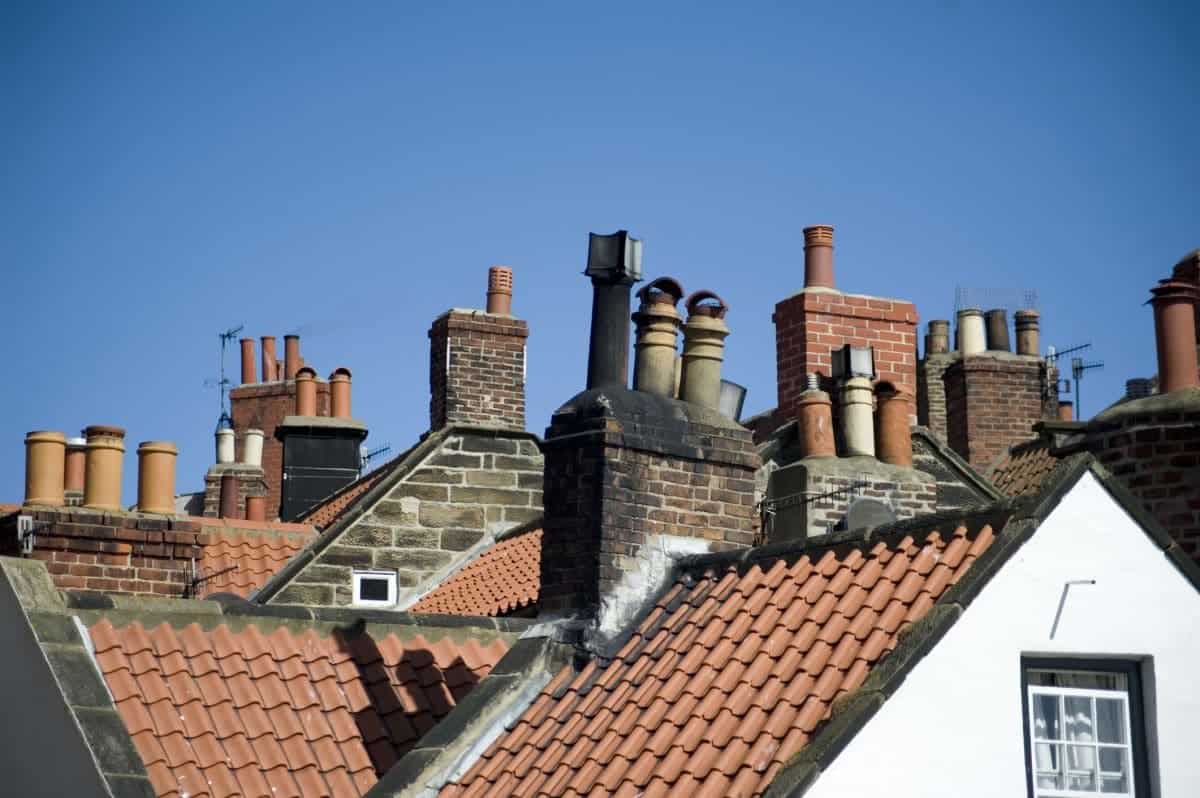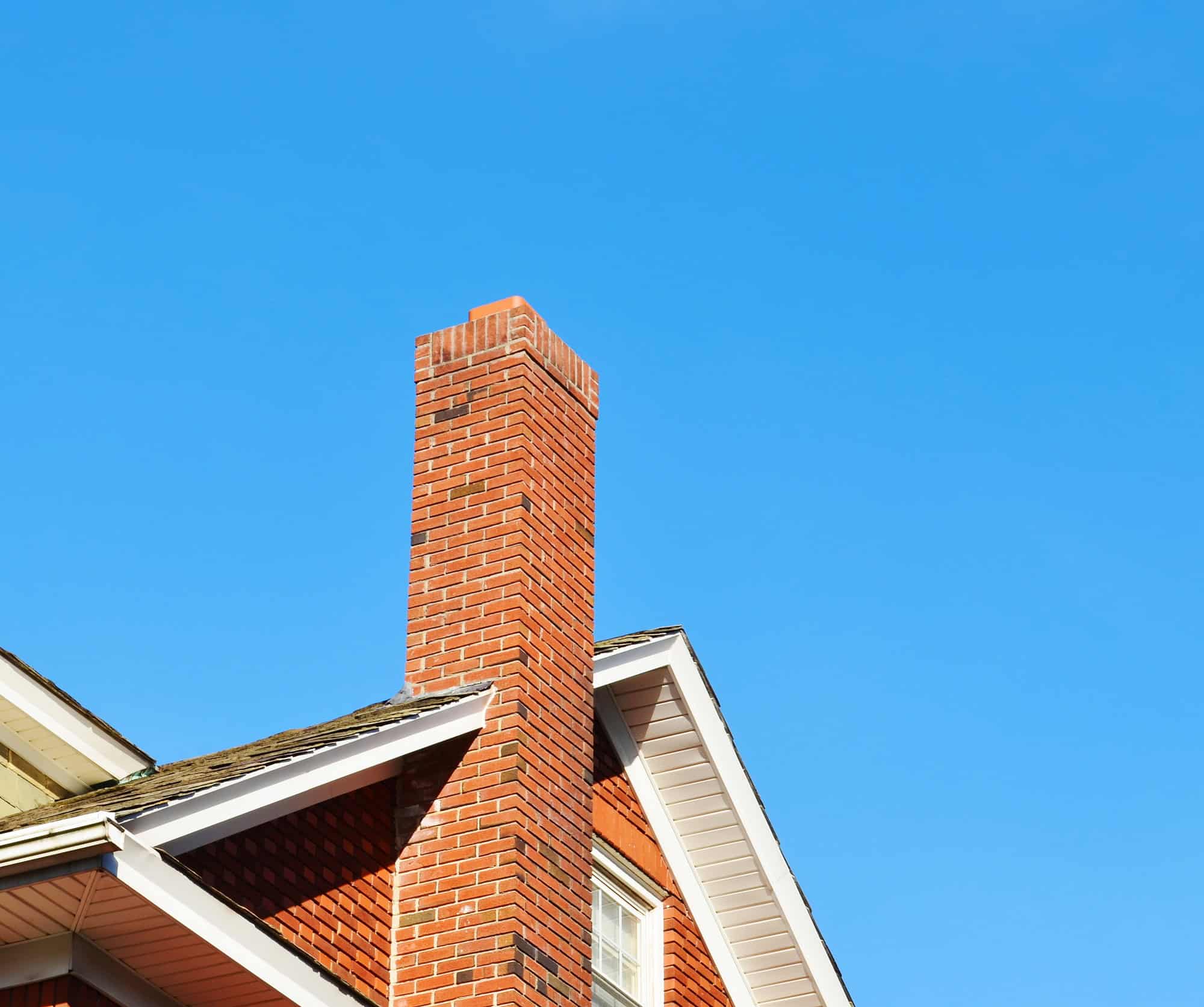
Summary:
Rhode Island’s coastal location creates a perfect storm for chimney systems. Salt-laden air combines with high moisture levels to accelerate wear on building materials, and your chimney liner bears the brunt of this assault. Coastal moisture and salt air accelerate deterioration of metal components like flashing and dampers, but the real damage happens inside your flue.
Rhode Island’s freeze-thaw cycles are brutal on chimney masonry. Water gets into tiny cracks, freezes, expands, and splits the mortar and bricks apart. This happens dozens of times each winter, gradually destroying your chimney from the inside out. Traditional clay tile liners simply can’t withstand this constant expansion and contraction without developing cracks that compromise your family’s safety.

Clay tile liners were the standard for decades, but they weren’t designed for Rhode Island’s unique climate challenges. Clay tile liners are traditional and fire-resistant but can crack over time, and in our coastal environment, that “over time” happens much faster than manufacturers expect.
The problem starts small. Poor chimney caps let rain and snow pile up inside the flue, creating ice dams that crack the liner. Once water penetrates those initial hairline cracks, Rhode Island’s winter weather takes over. Each freeze-thaw cycle makes the cracks larger, allowing dangerous gases to escape into your home’s structure.
You’ll often see the warning signs before a complete failure. White staining on exterior bricks indicates water movement through your masonry. Rust stains around the damper area or water stains on walls near your fireplace signal that your liner system is compromised. In Rhode Island’s climate, our inspections pay special attention to freeze-thaw damage that’s common in our winters. We identify water intrusion points, evaluate mortar joint condition, and check for the kind of gradual deterioration that happens when moisture gets into small cracks and expands during freezing weather.
The safety implications are serious. Broken or cracked liners can allow gases and excess heat to leak into deteriorating brick chimneys, which can lead to serious damage. In Rhode Island’s humid environment, this deterioration accelerates rapidly once it starts.
Stainless steel liners are highly durable, corrosion-resistant, and ideal for wood or gas fireplaces, but what makes them particularly suited for Rhode Island homes goes beyond basic durability. The key lies in the metallurgy and how different steel alloys respond to our specific environmental challenges.
The most common alloy for stainless steel chimney liners is 316. The 316 alloy liner is used for gas and oil appliances because it is resistant to the corrosive elements given off by these appliances. 316 can also be used to vent wood, coal, and pellet appliances. This versatility matters because many Rhode Island homeowners switch between heating methods or upgrade their systems over time.
316Ti features a unique titanium alloy designed to resist flue acids and the extreme stresses of hot and cold cycles. It can withstand multiple heating cycles up to 2100 degrees. This temperature resistance is crucial when you consider that the temperature produced by a chimney fire is considerably high and can melt cracked tiles, and mortars can cause collapsing of flue liners and significant damage to the exterior of masonry material.
The construction quality also sets stainless steel apart. With 7 ply seams and 10 corrugations per seam, it is a very durable liner that is air and water tight. Air and water tight chimney liners have seven ply seams that lock moisture and flue gases in the flexible flue liner which keeps them from leaking into the home. They guard against corrosion – certified stainless steel chimney liners protect against hostile acids which deteriorate masonry clay tile chimneys.
Want live answers?
Connect with a Certified Chimney Inspections expert for fast, friendly support.
Chimney liner installation typically requires a permit in Rhode Island, and only contractors with a Rhode Island Decorative Heat Appliance License can legally install liners. This licensing requirement exists because improper installation can create serious safety hazards, including carbon monoxide poisoning and house fires.
Rhode Island takes these requirements seriously. More than 20 rogue companies have been fined for installing liners without a license in the past three years alone. This enforcement exists for good reason – improper installation can turn a safety upgrade into a deadly hazard.

Professional chimney liner installation goes far beyond simply dropping a liner down your flue. Your chimney liner installation includes a complete inspection of your existing system, proper sizing and selection of the right liner material for your specific application, and professional installation that meets all Rhode Island building codes. We handle all permit requirements and inspections so you don’t have to worry about compliance issues.
The process starts with precise measurements and system evaluation. We take precise measurements for your specific appliance and chimney dimensions. Then we prepare the chimney, removing old clay tiles if necessary and making any repairs to ensure smooth installation. This preparation phase is critical because in Rhode Island, where many homes date back decades, we often discover underlying issues during our inspection process. We’ll identify any necessary repairs and discuss these findings with you before proceeding, so there are no surprises. This thorough approach is especially important in historic neighborhoods where original clay tile liners have deteriorated over time.
The new stainless steel liner gets carefully inserted and connected at both ends with proper sealing. We test draft and safety, then clean up completely. Most installations take 4-8 hours, and you get a detailed warranty covering materials and workmanship.
The quality of materials matters significantly in Rhode Island’s environment. We install premium 316Ti stainless steel liners that resist corrosion from Rhode Island’s salt air and acidic flue gases. These aren’t the thin-wall liners some contractors use – ours are heavy-duty systems designed for decades of service. In Rhode Island’s coastal environment, stainless steel outperforms clay tiles that crack from thermal cycling and aluminum that corrodes quickly.
Chimney liner installation in Rhode Island typically runs $1,500-$4,000 depending on your chimney height, diameter, and liner type needed. A standard 6-inch stainless steel system averages around $1,750 including lifetime warranty. The cost breaks down to materials ($800-$2,000), labor ($400-$1,250), and inspection/preparation ($200-$500).
Most homeowners see the investment pay for itself through improved heating efficiency and prevented damage. Better draft means lower fuel costs, and you avoid expensive repairs from heat damage to your chimney structure. In Rhode Island’s climate, this return on investment accelerates because stainless steel prevents the cascade of problems that develop when moisture penetrates failing clay liners.
A quality stainless steel chimney liner, when properly installed and maintained, can often last for many decades in Rhode Island’s climate. The exact lifespan depends on factors like the type of fuel you burn, how frequently you use your heating system, and whether you keep up with regular maintenance. Stainless steel’s resistance to corrosion and heat makes it particularly well-suited for Rhode Island’s harsh winters and freeze-thaw cycles.
The performance benefits extend beyond longevity. Your heating system drafts properly, cutting fuel costs by up to 15%. Dangerous gases vent safely outside instead of seeping into your living space. You stop worrying about carbon monoxide poisoning or chimney fires. For Rhode Island homeowners who depend on their heating systems through long, harsh winters, this reliability and efficiency improvement represents significant value.
The permit process ensures your installation meets local building codes and safety standards, which is important for insurance coverage and home resale value. Many insurance companies require proof of proper installation and permits. This documentation becomes particularly valuable when selling your home, as buyers increasingly understand the importance of proper chimney systems.
Rhode Island’s coastal environment and harsh winters demand chimney solutions that go beyond basic functionality. Stainless steel chimney liners provide the corrosion resistance, durability, and safety performance that clay alternatives simply can’t match in our challenging climate. When you factor in the multi-fuel compatibility, improved efficiency, and decades of reliable service, the choice becomes clear.
Professional installation by licensed contractors ensures your investment protects your family and meets all safety requirements. The upfront cost represents genuine value when you consider the prevention of expensive repairs, improved heating efficiency, and most importantly, the peace of mind that comes from knowing your chimney system can handle whatever New England weather brings.
For Rhode Island homeowners ready to upgrade their chimney liner system, we bring over two decades of experience and CSI-certified expertise to every installation. Your family’s safety and your home’s protection deserve nothing less than professional-grade solutions designed for our unique coastal environment.